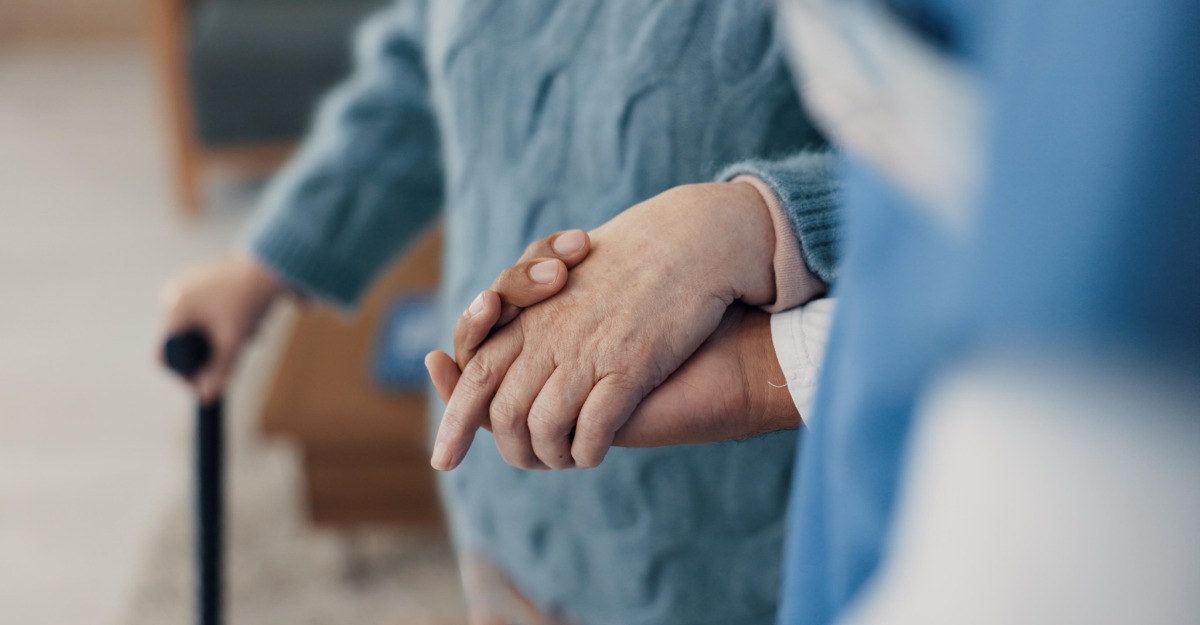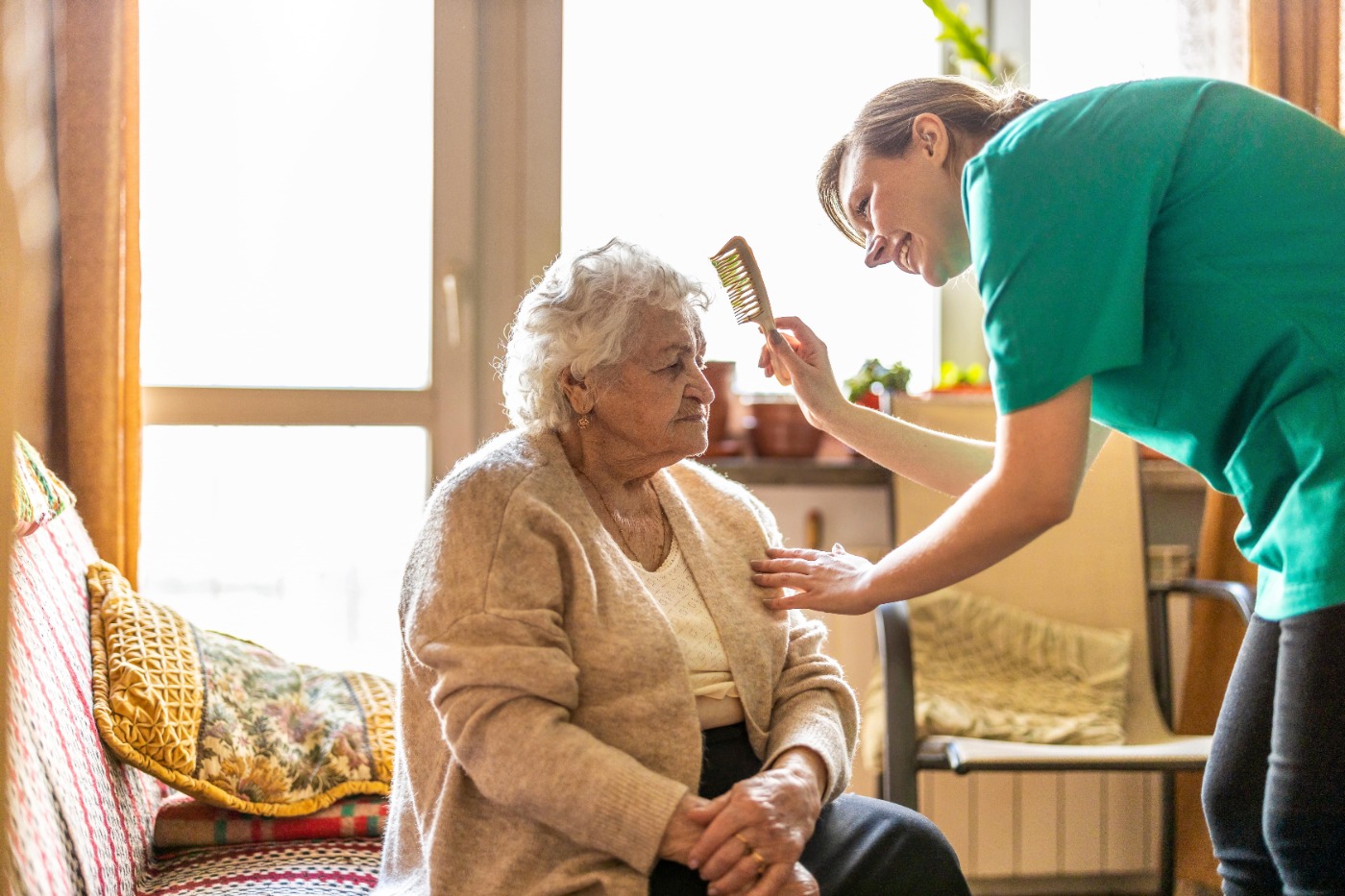Every year, as a UK healthcare provider, we are called upon to review clients who become restless or agitated at this time of year. These reviews are essential, allowing us to assess each patient’s unique needs and adjust their care plans to manage symptoms most appropriately.
But why does it always seem worse at this time of year?
We often see these issues due to a phenomenon called ‘sundowning’.
Sundowning
Sundowning describes an increase in restlessness, confusion, and agitation that typically occurs in the late afternoon or evening in individuals with dementia – including Alzheimer’s disease.
This condition can occur in any type of dementia, not just Alzheimer’s, and affects individuals differently depending on the stage of their cognitive decline.
As the clocks are set to go back this weekend, understanding sundowning becomes really important. The sudden change in time can disrupt the internal clock of those with dementia, leading to increased confusion as it gets dark earlier in the evening and light earlier in the morning.
This can make some people appear more agitated or not quite themselves and these behaviours can persist for several days as they adjust to the new routine.
At Alcester Home Care, we offer fully bespoke Dementia Care Services to help your loved one who may be suffering from dementia.

What to Expect
Symptoms of sundowning are varied and can occur in any stage of dementia, though they are often more noticeable in those with advanced cognitive decline. However, even in the early stages, subtle changes can be observed.
Common symptoms include:
- Irritability
- Confusion
- Anxiety
- Agitation
Some individuals may pace, wander, or have difficulty sleeping. They may also be more demanding or repetitively ask questions. Recognising these early signs can help in managing them effectively before they escalate.
What are the Common Triggers?
Several factors may trigger or worsen sundowning:
- Changes in the internal clock: Brain changes in dementia can disrupt the natural body clock, leading to confusion about night and day.
- Low light and increased shadows: As daylight fades, shadows can become more pronounced, potentially causing fear or visual confusion.
- Fatigue: Being tired from the day’s activities can lower a person’s threshold for confusion and agitation.
Impact of Seasonal Changes on Sundowning
Changes in the seasons, particularly in the autumn and winter, might make your loved one’s sundowning symptoms worse.
People with dementia may find it difficult to adapt to the change in light patterns when daylight hours shorten and darkness falls earlier in the day. The earlier onset of darkness can confuse their already disrupted internal clock, making it difficult to determine whether it’s day or night.
Your loved one may encounter difficulty sleeping, and it may become tiresome to have to deal with. Our Overnight Support Services, allow you to have a carer available overnight, relieving the usual carer of their duties, while ensuring your loved ones continue to receive the care they need.
This confusion can trigger or worsen agitation, restlessness, and disorientation. Similarly, the reduced exposure to natural sunlight during winter months can impact mood and energy levels, and increase irritation.
How Best to Manage Sundowning
Here are some strategies to help manage sundowning in your loved one:
- Increase lighting: As the evening approaches, keep your home well-lit to minimise shadows and help reduce confusion.
- Maintain a routine: Try to keep a consistent daily schedule for waking up, meals, and bedtime. Familiar routines can provide comfort and reduce anxiety.
- Engage in calming activities: Simple, soothing activities such as listening to gentle music, looking through photo albums, or engaging in a favourite hobby can help ease the transition into the evening.
- Ensure safety: Consider extra safety measures such as door alarms or locks if wandering at night becomes problematic.
And don’t forget the importance of supporting family carers and yourself. At Alcester Home Care, we offer Respite Care Services to provide a much-needed break for you or the primary carer, because self-care is essential.

Caring for a loved one with dementia can be challenging, especially when dealing with sundowning. Here are a few tips for those caring for someone with dementia:
- Educate yourself and others: Understanding what sundowning is and how it manifests can prepare you to handle it more effectively.
- Seek support: Join support groups or connect with other carers who can offer advice and understanding based on their experiences.
- Take breaks: Respite care, whether provided by family members or professionals, can offer you a much-needed break to recharge.
As we adjust our clocks this weekend, it’s an excellent time to remind ourselves of the challenges faced by those living with dementia and the impact of changes like daylight savings time.
By adopting some of these strategies and maintaining patience and empathy, you can help manage sundowning symptoms and improve the quality of life for both your loved one and yourself.
Remember, you are not alone, and help is available for both you and your loved one. If you need help or care, please do not hesitate to contact us, as seeking care early can help avoid complications and ensure a more comfortable adjustment for your loved one.
